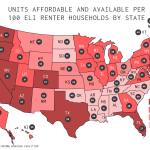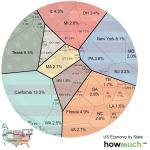Rick Scott tariffs have emerged as a pivotal topic within the landscape of U.S. trade policy, specifically associated with the broader implications for American workers and the economy. These tariffs, largely seen as a continuation of the Trump administration’s strategic approach, aim to reshape trade relationships, particularly with competitive nations like China. Advocates argue that these measures could level the playing field, allowing U.S. manufacturers to thrive while challenging existing global trade norms. However, the economic impact remains contentious; critics suggest such tariffs could exacerbate volatility in global stock markets and contribute to economic downturns. The ongoing debate underscores the complexities inherent in balancing domestic interests with international commerce.
The recent discussions surrounding the tariffs promoted by Senator Rick Scott highlight a significant shift in America’s trade dynamics. Often referred to in terms of protective measures and economic adjustments, these tariffs aim to confront the competitive pressures presented by nations like China. As stakeholders examine the implications for American labor and manufacturing, the push for favorable trade structures becomes increasingly critical. Scott’s stance emphasizes the need to eliminate barriers that hinder U.S. exports, thus positioning American businesses for greater success on the global stage. As this trade dialogue unfolds, the relationship between U.S. economic stability and international tariffs remains a focal point for policymakers and industry experts alike.
Understanding Rick Scott’s Tariff Strategy
Rick Scott has emerged as a prominent advocate for tariffs, framing them as a pivotal step toward revitalizing the American workforce. He argues that tariffs will not only protect U.S. products from foreign competition but also enable American workers to thrive in the global marketplace. By imposing tariffs, Scott believes the playing field is leveled, allowing U.S. manufacturers to operate under fair conditions against countries like China, which have previously benefitted from lower export barriers. His approach underscores a larger narrative within U.S. trade policy that seeks to prioritize domestic production and employment.
Moreover, Scott’s perspective is rooted in the belief that engaging in trade negotiations with nations imposing high tariffs on American goods fails to address the core issue of economic equity. In his view, imposing tariffs is not merely about raising prices; instead, it represents a robust defense of American labor interests. The economic impact of such tariffs, Scott argues, ultimately assists American workers by encouraging them to sell more products without the hindrances of excessive foreign tariffs, thereby stimulating growth in the U.S. economy.
The Economic Impact of Tariffs on Global Markets
The application of tariffs has led to marked volatility within global stock markets, raising concerns among economists and investors alike. The recent data indicates that stock markets have experienced significant downturns, in part due to fears of a trade war precipitated by U.S. tariffs, particularly those targeting China. This unpredictability not only affects the immediate financial landscape but also impacts long-term economic strategies for businesses operating both domestically and internationally. Investors are weighing the risks associated with increased trade tensions, leading to cautious behavior in financial markets.
Furthermore, the economic implications extend beyond stock prices, influencing GDP growth and employment rates in various sectors. Critics argue that the imposition of high tariffs might counteract the intended benefits that Rick Scott and other proponents are advocating for. They suggest that while tariffs may initially appear to protect and stimulate American industry, they might also lead to increased production costs, which could, in turn, lead to inflationary pressures. Such economic ramifications are crucial considerations for policymakers who must navigate the delicate balance between protecting American jobs and maintaining a healthy global trade environment.
Rick Scott’s Views on China and Trade Relations
Central to Rick Scott’s tariff strategy is his uncompromising stance on China, which he identifies as one of the United States’ most significant economic threats. Scott’s assertion that there should be no trade with China echoes a sentiment found in his broader vision of U.S. trade policy, one which seeks to impose strict limitations on dealings with countries viewed as adversarial. His argument posits that strong tariffs on Chinese goods are essential for safeguarding American economic interests and preventing potential conflicts between the two superpowers.
This approach resonates with a growing sentiment among American policymakers who share concerns about China’s rising influence on the global stage. By implementing tariffs, Scott believes the U.S. can create a more competitive environment for American workers, thus bolstering domestic manufacturing. Nonetheless, this hardline approach raises questions about the effectiveness of tariffs as a negotiating tool, which could potentially exacerbate tensions and hinder diplomatic avenues for resolving economic disputes. The ongoing dialogue surrounding tariffs and trade relations with China remains a pivotal issue for the future of U.S. trade policy.
The Debate Over Inflation and Tariffs
One of the contentious points in the discussion of Rick Scott’s tariff proposals is their potential impact on inflation. While Scott expresses uncertainty about how tariffs will directly influence inflation rates, he posits that a balanced budget is more crucial for controlling inflationary pressures than the tariffs themselves. This standpoint reflects a broader economic debate regarding the interplay between tariffs, government spending, and inflation, raising valid concerns about the long-term outcomes of such fiscal policies.
Economists warn that introducing tariffs can lead to higher consumer prices, as domestic producers may pass increased costs onto consumers. This could result in squeezing American wallets, directly affecting purchasing power and the overall economy. Critics argue that the combination of tariffs and an unbalanced budget could create a precarious economic situation, undermining the benefits intended by Scott’s proposals. Consequently, navigating the potential inflationary effects of tariffs while maintaining fiscal responsibility is a challenge that requires careful consideration by policymakers.
Rick Scott’s Economic Vision for American Workers
Rick Scott emphasizes a vision where American workers are at the forefront of U.S. economic policy. His advocacy for tariffs is framed as a means to revitalize domestic job growth by bolstering manufacturing and reducing reliance on foreign imports. Scott believes that by lowering barriers on American goods and imposing strict tariffs on countries with high levies, it creates a more favorable landscape for U.S. exports, ultimately empowering American workers to thrive in the global marketplace.
This focus on American workers aligns with a broader trend in U.S. trade policy that seeks to prioritize job creation in critical sectors while addressing the competitive challenges posed by global trade dynamics. Scott’s approach is centered on ensuring that the American workforce feels secure and supported through government policies that effectively respond to international economic pressures. Thus, his advocacy aims not only to alter trade relations but also to foster a robust economic environment that incentivizes growth and innovation for American labor.
Negotiating Trade: Strategies Beyond Tariffs
While Rick Scott staunchly defends the use of tariffs, the potential for negotiation with trading partners remains a crucial topic of discussion in U.S. trade policy. Critics of the current tariff strategy wonder if alternatives such as trade negotiations could yield more constructive outcomes, both economically and diplomatically. Engaging in discussions with trading partners might allow the U.S. to leverage its position without resorting to punitive measures that could provoke retaliation and lead to a damaging trade war.
By prioritizing negotiations, the U.S. could potentially reach agreements that lower tariffs on both sides and create a more equitable trade environment for American workers. It is essential to consider that a balanced approach could maintain competitive pricing while also ensuring that American products are positioned favorably within global markets. The ongoing exploration of trade strategies, including diplomatic avenues, is vital in shaping a forward-thinking trade policy that aligns the interests of both American consumers and workers.
American Manufacturing: Tariffs as a Protective Measure
Rick Scott’s advocacy for tariffs is embedded in a broader narrative of protecting American manufacturing from foreign competition, particularly from nations like China. He argues that tariffs serve as a defensive barrier against imported goods that undermine U.S. manufacturers’ ability to compete on fair terms. By instituting tariffs, the government aims to bolster domestic industries, thereby supporting job retention and creation in manufacturing sectors that have been adversely affected by globalization and lax import regulations.
However, while the intent behind these tariffs is to stimulate growth in manufacturing, the actual outcomes remain a topic of significant debate. Tariffs can compromise market efficiencies and inadvertently lead to higher prices for consumers as domestic companies adjust to increased costs. Finding the right balance between protecting American manufacturing and ensuring the affordability of goods remains a key challenge for policymakers as they shape the future of U.S. trade policy.
Potential Consequences of a Tariff Policy Shift
Transitioning to an aggressive tariff policy, as advocated by Rick Scott, involves navigating a series of potential consequences that could shape the future of U.S. trade relations. One immediate effect is the risk of sparking retaliatory tariffs from affected nations, particularly China, which could escalate tensions and impact bilateral trade. The intricacies of retaliatory measures highlight the delicate nature of trade dynamics, where one nation’s policies can directly influence the political and economic climate of another.
Long-term consequences could also emerge, influencing everything from international relations to job growth in industries reliant on imports. Increased tariffs might temporarily protect American jobs but could also encourage a cycle of retaliation that ultimately disrupts global supply chains. As stakeholders assess the implications of such policies, careful consideration of the potential for economic isolation versus the intent to protect domestic interests will be crucial in determining the trajectory of American trade policy.
Evaluating the Role of Tariffs in U.S. Trade Policy
The role of tariffs in shaping U.S. trade policy is under increasing scrutiny, particularly as public opinion shifts in response to economic outcomes linked to these measures. Rick Scott’s strong endorsement of tariffs reflects a significant faction within American politics that believes in prioritizing national interests over global engagements. Yet, evaluating the effectiveness of such a strategy requires a thorough examination of both immediate and long-term economic impacts, including consumer behavior and market responses.
As the debate continues, it is essential for all stakeholders—policymakers, businesses, and consumers—to engage in critical dialogues about the benefits and drawbacks of tariff implementation. Understanding how tariffs interact with other aspects of trade policy can offer insights into future approaches that might better serve American workers while fostering constructive international relationships. Ultimately, a balanced and nuanced approach will be vital in navigating the complexities of global trade and its implications for the U.S. economy.
Frequently Asked Questions
How do Rick Scott tariffs aim to impact U.S. trade policy?
Rick Scott argues that the tariffs implemented under the Trump administration are designed to level the playing field for American workers by encouraging other nations to reduce their own tariffs on U.S. products. This strategy attempts to reshape existing U.S. trade policy and aims at supporting American manufacturing and workforce.
What are the implications of Rick Scott tariffs on American workers?
According to Rick Scott, the tariffs are intended to benefit American workers by allowing them to sell more products internationally. He believes that reducing barriers to trade can enhance the competitiveness of U.S. workers in the global market, ultimately leading to job growth and economic improvement.
How do Rick Scott tariffs relate to the economic impact on global stock markets?
The implementation of Rick Scott tariffs has caused volatility in global stock markets, contributing to significant economic concerns. Critics like Jason Furman have noted that these tariffs may have triggered fears of an economic downturn, affecting investor confidence and leading to substantial losses in market value.
What are the potential economic risks associated with Rick Scott tariffs and U.S. trade policy?
While Rick Scott advocates for tariffs as a means to strengthen U.S. trade policy, many economists warn that such unilateral actions could lead to economic risks, including trade wars and inflation. The 145 percent tariff on China has particularly raised concerns about retaliatory measures that could further destabilize the economy.
Why does Rick Scott view China as a significant competitor in terms of tariffs?
Rick Scott views China as the most concerning competitor for the U.S. economy because of its growing economic and political power. He believes that stringent tariffs against China are necessary to safeguard American interests, arguing that reducing trade with China could prevent broader conflicts.
What stance does Rick Scott take on the relationship between tariffs and inflation?
Rick Scott expresses uncertainty about the exact impact of tariffs on inflation. He suggests that the relationship is complex and that controlling inflation may ultimately depend on achieving a balanced budget rather than solely relying on the effects of tariffs.
How effective are Rick Scott tariffs in closing trade deficits?
Supporters of Rick Scott tariffs, including former President Trump, argue that they are a tool for closing trade deficits and helping U.S. manufacturers compete better internationally. However, this view is contentious, with many economists arguing that tariffs may have adverse effects, negating their intended benefits.
What are the consequences of the tariffs imposed on China as part of Rick Scott’s strategy?
The tariffs imposed on China, which now face a high rate of 145 percent, have resulted in retaliatory measures such as the 125 percent tariffs on U.S. imports from China. This escalating trade conflict could harm both countries’ economies and complicate U.S. trade relations globally.
| Key Point | Details |
|---|---|
| Scott’s Defense of Tariffs | Rick Scott supports tariffs as a means to support American workers and challenge other nations to lower their trade barriers. |
| Impact of Tariffs | The tariffs have caused volatility in global stock markets and contributed to a contraction in U.S. GDP. |
| Trade Relations with China | Scott emphasizes that the U.S. should not trade with China and believes their economy must decline to prevent potential conflict. |
| Tariff Rates | A 10% tariff is applied to most countries, while China faces a tariff rate of 145% after retaliatory measures. |
| On National Debt | Scott calls for a balanced budget and reduced spending to improve the nation’s fiscal health amid rising debt projections. |
| Inflation Concerns | Scott expresses uncertainty about the impact of tariffs on inflation, linking economic stability to budget management. |
Summary
Rick Scott tariffs are designed to protect American workers and create a more favorable trading environment. By advocating for the imposition of tariffs, Scott reflects a broader Republican perspective that seeks to reshape U.S. international economic relations. Despite the potential for economic turmoil, Scott remains firm in his belief that tariffs will ultimately benefit American workers, especially in the context of competition against nations like China. The ongoing dialogue around these tariffs indicates significant impacts on trade dynamics and domestic economic policies.







